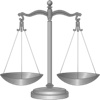According to “The Wall Street Journal” (http://tinyurl.com/mtqsxya) Michael Bromwich, the lawyer picked as Apple’s monitor in the ebook legal case, said in court documents filed Monday that Apple’s characterization of his team’s activities as a “roving investigation” in fact “bear no relation whatsoever to the activities we have attempted to conduct.”
Last month Apple filed papers in federal court in Manhattan seeking to halt a court-appointed antitrust monitor, Bromwich, from engaging in any further oversight over the company, pending the outcome of its appeal of the e-books antitrust judgment entered against it last July. Apple claimed that Bromwich “is conducting a roving investigation that is interfering with Apple’s business operations, risking the public disclosure of privileged and confidential information, and imposing substantial and rapidly escalating costs on Apple that it will never be able to recover,” even if it wins its appeal.
Apple also alleged that the monitorship, “as it is being interpreted and implemented by Bromwich as the Court’s agent, is flatly unconstitutional, and will be reversed on appeal.” On Monday, in an 11-page document accompanied by hundreds of pages of emails, Bromwich described repeated alleged efforts by Apple to block interviews between him and senior executives, as well as the company’s failure to turn over relevant documents.
A lawyer for Apple declined to comment and a spokeswoman for Bromwich declined to comment to the “The Wall Street Journal.”
On April 11, 2012, the U.S. Department of Justice filed a civil antitrust lawsuit in the U.S. District Court for the Southern District of New York against Apple, Hachette, HarperCollins, Macmillan, Penguin and Simon & Schuster, for conspiring to end e-book retailers’ freedom to compete on price by taking control of pricing from e-book retailers and substantially increasing the prices that consumers paid for e-books.
At the same time that it filed the lawsuit, the department reached settlements with three of the publishers — Hachette, HarperCollins and Simon & Schuster. Those settlements were approved by the court in September 2012. The department settled with Penguin on Dec. 18, 2012, and with Macmillan on Feb. 8, 2013. The Penguin settlement was approved by the court in May 2013. Final approval of the Macmillan settlement is pending before the court.
Under the settlements, each publisher was required to terminate agreements that prevented e-book retailers from lowering the prices at which they sell e-books to consumers and to allow for retail price competition in renegotiated e-book distribution agreements.
The department’s trial against Apple, which was overseen by Judge Denise Cote, began on June 3, 2013. The trial lasted for three weeks, with closing arguments taking place on June 20. The court issued its opinion that Apple violated Section 1 of the Sherman Act on July 10.


